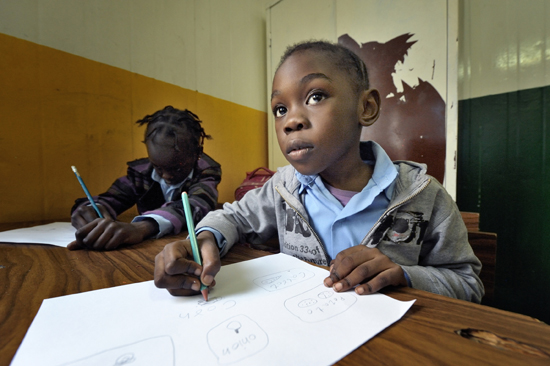In 2015, UN member bodies will replace the Millennium Development Goals (MDGs) with a new set of Sustainable Development Goals (SDGs). One “goal” that is already attracting controversy, especially among religious groups, is SDG 5: “Achieve gender equality and empower all women and girls”.
In recent months, I have taken part in two international consultations on religious responses to the SDGs. In September 2014, I was a guest of UNFPA (the United Nations Population Fund). In May 2015, the Pontifical Council for Justice and Peace hosted a consultation with Catholic women on how its mission to the UN should be responding to the new targets. At both gatherings, the most contentious issues were the ones raised by SDG 5, with particular suspicion of the terms “gender”, “sexual and reproductive health” and “reproductive rights”. At neither meeting was there a real attempt to define what we mean when we use this language.
 I've worked in the field of development since the mid-1980s, and for most of that time, gender analysis has been widely – and usefully – employed as a sociological tool for analysing the causes of inequalities associated with biological difference between men and women. In recent years, though, the emphasis has shifted, leading to a fear that “gender justice”, “gender rights”, or “gender equality” may usher in a raft of beliefs about issues such as abortion, surrogacy, gay marriage that some people would find difficult to accept. So “gender” has lately morphed into a kind of catch-all, scapegoat term that takes the blame for everything that does not fit into particular ideals of sexuality and reproduction.
I've worked in the field of development since the mid-1980s, and for most of that time, gender analysis has been widely – and usefully – employed as a sociological tool for analysing the causes of inequalities associated with biological difference between men and women. In recent years, though, the emphasis has shifted, leading to a fear that “gender justice”, “gender rights”, or “gender equality” may usher in a raft of beliefs about issues such as abortion, surrogacy, gay marriage that some people would find difficult to accept. So “gender” has lately morphed into a kind of catch-all, scapegoat term that takes the blame for everything that does not fit into particular ideals of sexuality and reproduction.
There is little doubt that this shift has undermined the usefulness of gender theories when it comes to addressing justice issues related to the societal consequences of male/female biological difference. In effect, by demonising the language, you risk throwing the baby out with the bathwater. We must ask, then: is this fate currently befalling the language of rights generally?
The Palestinian human rights scholar Uri Davis believes that “the God-centred master-narrative/paradigm of religious discourse and the humanity-centred master-narrative/paradigm of human rights discourse are not compatible.” I do not want to believe this is true. As Pope Francis’ recent encyclical letter Laudato si’ makes clear, it is in the interests of the human race and of our planet that religious and human rights discourses should complement each other – which means developing spaces where they can be in dialogue in a spirit of mutual respect, and come together with the humility to recognise the limitations of human understanding, aware that all we can assume, in this life, is that we will “know in part and prophesy in part”, as St Paul says.
Accordingly, a number of Catholic theologians and development specialists are working on a research project on how the concepts of gender, sexual and reproductive health and reproductive rights are commonly understood. What coded understandings underpin these concepts? How may we facilitate a deeper engagement between global development discourses and religious (especially Catholic) discourses on gender and reproductive “rights”? We would welcome contributions from readers.
Dr Gillian Paterson is a research associate at Heythrop College, University of London
Above: A girl who is a refugee attends a lesson in Cairo. Photo: CNS


 Loading ...
Loading ...
What do you think?
You can post as a subscriber user ...
User comments (2)
I agree that language is becoming a problem that stops real dialogue. I think that vested interest groups,who I suspect are fearful of having their positions questioned, purposely subvert language so that the real issues will not be discussed.
It is absolutely essential that all people be uniformly impoverished--except members of the clergy of course.